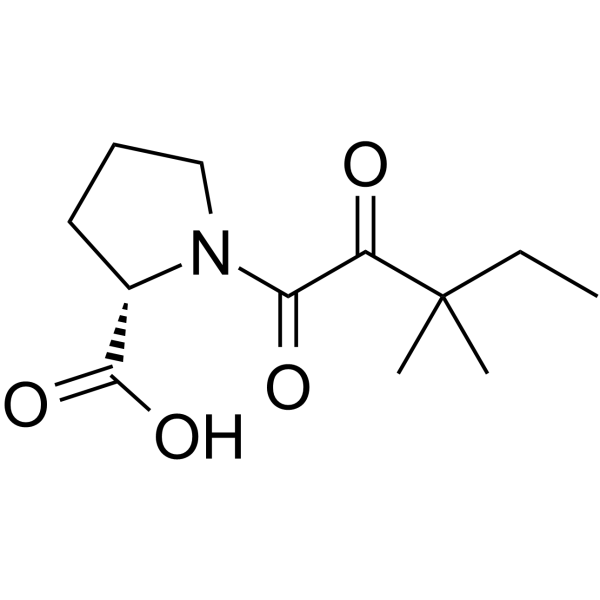
GPI-1485
CAS No. 186268-78-0
GPI-1485( GM1485 )
Catalog No. M28922 CAS No. 186268-78-0
GPI-1485 (GM1485) is a nonimmunosuppressive immunophilin ligand, promoting neurofunctional improvement and neural regeneration following stroke.
Purity : >98% (HPLC)
 COA
COA
 Datasheet
Datasheet
 HNMR
HNMR
 HPLC
HPLC
 MSDS
MSDS
 Handing Instructions
Handing Instructions
| Size | Price / USD | Stock | Quantity |
| 5MG | 147 | Get Quote |


|
| 10MG | 222 | Get Quote |


|
| 25MG | 410 | Get Quote |


|
| 50MG | 605 | Get Quote |


|
| 100MG | 860 | Get Quote |


|
| 200MG | Get Quote | Get Quote |


|
| 500MG | Get Quote | Get Quote |


|
| 1G | Get Quote | Get Quote |


|
Biological Information
-
Product NameGPI-1485
-
NoteResearch use only, not for human use.
-
Brief DescriptionGPI-1485 (GM1485) is a nonimmunosuppressive immunophilin ligand, promoting neurofunctional improvement and neural regeneration following stroke.
-
DescriptionGPI-1485 (GM1485) is a nonimmunosuppressive immunophilin ligand, promoting neurofunctional improvement and neural regeneration following stroke.(In Vitro):GPI-1485 induced cellular reprogramming and neural cell induction in normal human dermal fibroblasts (NHDF) .(In Vivo):GPI-1485 (5 mg/kg; intraperitoneal injection; 6-week period of daily) improved long-term neurological recovery in rats
-
In VitroGPI-1485 (GM1485; 100 μM) induces cellular reprogramming and neural cell induction in normal human dermal fibroblasts (NHDF). Cell Viability Assay Cell Line:Normal human dermal fibroblasts (NHDF)Concentration:100 μM Incubation Time:Result:Induced cellular reprogramming and neural cell induction.
-
In VivoGPI-1485 (GM1485; 5 mg/kg; intraperitoneal injection; 6-week period of daily) improves long-term neurological recovery in rats. Animal Model:Adult male Wistar rats, weighing 250-300 g Dosage:5 mg/kg Administration:Intraperitoneal injection; daily; for a total of 42 days Result:Administration improved neurological function and is consistent with an upregulation of endogenous neurogenesis following stroke in rats.
-
SynonymsGM1485
-
PathwayOthers
-
TargetOther Targets
-
RecptorUSP8
-
Research Area——
-
Indication——
Chemical Information
-
CAS Number186268-78-0
-
Formula Weight241.287
-
Molecular FormulaC12H19NO4
-
Purity>98% (HPLC)
-
SolubilityIn Vitro:?DMSO : 100 mg/mL (414.46 mM)
-
SMILESCCC(C)(C)C(=O)C(=O)N1CCC[C@H]1C(O)=O
-
Chemical Name——
Shipping & Storage Information
-
Storage(-20℃)
-
ShippingWith Ice Pack
-
Stability≥ 2 years
Reference
1.Zhiyu Li, et al. USP8 inhibitor and preparation method and application thereof. CN111138358A.
molnova catalog



related products
-
Kaurenoic acid
Kaurenoic acid has anti-inflammatory potential in acetic acid-induced colitis, decreases in MDA level.
-
VULM 1457
VULM 1457 is a potent ACAT inhibitor. VULM 1457 has remarkable hypolipidaemic activity and improves the overall myocardial ischaemia-reperfusion injury outcomes.
-
Gadobutrol
Gadobutrol is a nonionic paramagnetic contrast agent developed for tissue contrast enhancement in magnetic resonance imaging (MRI).



 Cart
Cart
 sales@molnova.com
sales@molnova.com


